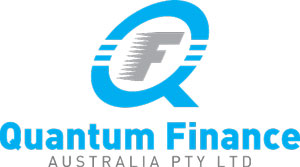We have compiled the Frequently Asked Questions (FAQs) regarding mortgage, finance, lending, and other related topics in this page. If you are a first homeowner, an investor, a developer, or a business owner, you will certainly benefit from knowing the answers to your questions.
What is the first homeowners grant and am I eligible to apply?
The First Home Owners Grant is a type of grant that the Federal Government gives to first home buyers.
All Australians need to know about the eligibility criteria between states and the benefits involved.
Aside from the location of the borrower, other details that affect your grant are:
- Whether the house is new or you will build it yourself
- If it is an established property
- Purchasing a vacant land
- Building type
- Purchase price of the property you want to buy
To discover more in relation to the First home owners grant and eligibility in Western Australia please visit our First Home Owners Grant page.
What is the First Home Loan Deposit Scheme?
The First Home Loan Deposit Scheme is essentially a way for first home buyers to secure the home they want to purchase with a five per cent deposit. The scheme eliminates the requirement of paying the mortgage insurance premium of the lender.
How Much Can I Borrow?
You could be dreaming of living in a large Victorian or Edwardian home with at least three bedrooms. Or perhaps you're an investor who just spotted a renovator's delight in a vast property. However, most of the time, it is the budget that's difficult to acquire, not the house itself.
Your budget says a lot about your borrowing capacity. Providing at least 10 per cent of the entire amount, which will serve as the deposit is a sure step in the right direction for approval. Other properties, though, need at least 20 per cent, which is ideal, especially because you can avoid paying for the expensive lenders' mortgage insurance (LMI).
If you qualify for the First Home Loan Deposit Scheme, you can pay as little as five per cent. There's no LMI, as well. When borrowing funds, your income, monthly expenses, existing debts, and risk will be considered. We can help you determine how much you can afford so you can set the budget to target the right property to buy.
What Extra or Hidden Costs Should I Be Aware Of?
You will have to pay for the stamp duty, which is a big expense. It's the tax on the property purchase. The exact amount will depend on different aspects, including your location. However, it is usually calculated at five per cent of the property's value. If you're buying a house for the first time or the property will serve as your primary residence, you could be exempt from this payment. For foreign residents, an extra seven per cent will be required on top of the payment.
Aside from the stamp or transfer duty, you will also need to keep in mind the following:
- Legal fees, which can be anywhere from $1,000 to $2,000
- Building or property inspections from $400 to $500 (optional)
- Repairs, especially when purchasing an established house
- Landscaping and fencing costs
Having extra money on hand to pay for the fees above and unforeseen expenses is always a good idea.
Will the Property Have Any Planning Restrictions?
After looking around, you probably have a shortlist of properties you'd like to buy. But your job does not end here, of course. You should do your homework, especially in determining if there are any restrictive planning rules imposed on the property or location. A property can look perfect for you on the outside, but it can be encumbered with regulations that can impact its future resale value or your renovation expenses.
For instance, a heritage overlay may mean that you cannot modify the home's exterior. In other cases, such as an environmental significance overlay, you may not be allowed to construct a fence.
Is a Building Inspection Really Necessary?
You're not required by law to organise an inspection. However, it is vital whether you are a first home buyer or an investor. It can cost you around $400 or more, but it is worth the money. Through an inspection, you can determine if there is something wrong, such as a leaky roof or termite damage. These things can cost you thousands of dollars just for repair.
A house is a big purchase. It's only right that you feel entirely confident in your chosen property. All buyers of pre-existing homes will benefit from a home or building inspection. The process can check for signs of minor and major defects, along with safety hazards and structural problems.
Do I Need the Services of a Conveyancer or Lawyer?
While it is not required to hire a lawyer or conveyancer, it can be complex to transfer property title and ownership for the first time. This undertaking is long and exhaustive, involving many requirements. You will deal with legal and administrative documents, which can be challenging to navigate without expert advice.
A solicitor or conveyancer can join your team with a mortgage broker when buying a property. We can all help you avoid certain pitfalls, such as losing the property to another buyer. A conveyancer's job is to provide information about the property and perform tasks, including reviewing contracts to ensure there are no errors or red flags.
You can choose between a solicitor, conveyancer, and lawyer. They can provide you with advice, mainly if things don't go to plan.
How Will my Interest Rate be Determined?
Your interest rate will be different from a family member, friend, or colleague. That's because everyone has their own financial circumstances. Your lender, loan product, and contract will often determine your interest. Some of the factors that lenders usually look at are your payment and credit history, current debts, employment status, and income.
Typically, the interest is calculated against the outstanding balance per day.
For Example:
you are planning to take out a $300,000 loan. You are offered a standard variable rate of seven per cent per annum. The daily interest would be calculated this way:
- ($300,000 loan x 7% interest) / 365
- Therefore, the daily interest is $57.53.
Depending on the type of loan you have, you may be required to pay back the actual loan amount known as the principal as well as interest. It will be added on top of your interest.
Who is Plan Australia? And What is an Aggregator?
PLAN Australia
It is not always easy to start a business. Often, the most important things are overlooked while others are done merely to meet the regulatory requirements. However, only successful mortgage brokers know the power of choosing the most suitable aggregator. The right broker aggregator can fit appropriately into the existing business model.
Who is Finance Brokers Association of Australia (FBAA)?
When you work with Quantum Finance Australia, you may see our association with other organisations. One of which is with the prestigious Finance Brokers Association of Australia (FBAA).We take pride in being a recognised firm by the FBAA, and we would like you to understand why.
Is Mortgage Broking a Good Career?
Mortgage brokers are a part of the ever-evolving world of finance. If you're interested in working in this industry, you may want to consider working as one. You will be dealing with clients looking for a home loan and other types of finance products. Therefore, it is mostly required that you can offer excellent customer service.
You should also be good at communicating with other people, knowledgeable in numbers, and organisation skills. You will be working with more than one client at a time, which includes lenders and borrowers. That means you should know how to balance your time for each of them.
Being a mortgage broker is rewarding. If you love to help other people achieve their dream of owning a home or even building a business, this may be a great career for you.
What are the Requirements to Become a Mortgage Broker in Australia?
There are a few requirements for those who would like to work as a mortgage broker in Australia, including:
- Completing Certificate IV in Finance and Broking (FNS40815)
- Joining a group to work through or an aggregator
- Becoming authorised with a credit licence
- Joining an association, such as MFAA or FBAA
- Becoming a part of the External Disputes Resolution Scheme of the Australian Financial Complaints Authority EDRS AFCA
While early in the game, it is advised to have access to as many lenders as you can. You have to build rapport with big and small financial organisations. That way, you can provide several loan products to your potential customers. Lenders often look for your Certificate IV in Finance and Mortgage Broking before they will give you access to their products.
You should also hold an Australian Credit Licence (ACL) or become a credit representative.
Where Can I Study to Become a Mortgage Broker?
You can study and earn a Certificate IV in Finance and Mortgage Broking in many parts of the country. It is nationally recognised so you can practise mortgage broking no matter which state you like. The course is based on the Australian Quality Training Framework and taught by experienced mortgage brokers.
Some recognised Registered Training Organisations in the country include the following:
- The National Finance Institute
- AAMC Training Group
- Australian College of Commerce and Management
- Traineeship Management Australia
- Holmesglen Institute
- Australian Global College
- Australian College of Professionals
- Aviation Skills Training Academy
- International Institute of Technology
Completing the course is at your own expense. The costs vary depending on the RTO where you have enrolled. If you're working at a brokerage, you could get a discount if the company partners with the RTO.
What Career Opportunities Do I Have After Completing a Mortgage Broker Course?
After completing your qualifications in mortgage broking, you can seek employment in finance or mortgage broking. You can also become self-employed or do contract work. Some mortgage brokers opt to work under a franchise. Many banks in the country also employ mortgage brokers.
If you are still looking for a job after your course, you can look for job opportunities at credit unions, building societies, and similar agencies.
Becoming a mortgage broker opens wonderful possibilities, especially if you're looking for an attractive income. One of the best things about this job is that brokers continue to enjoy work and life balance. You can work independently or with a team. Because the finance field stays healthy in the country, you can expect that being a mortgage broker can offer you a stable career.
How Do I Become an Accredited Business in Mortgage Broking?
First, you're required to become a representative of a credit licence holder. For the first two years of your career, you should work as such. From there, you can decide whether you want to continue to stay as a representative or acquire your own credit licence.
ASIC regulates mortgage brokers, and the government agency requires brokers to complete Certificate IV in Finance and Mortgage Broking before applying for a licence. You can also take up the FNS50315 Diploma of Finance and Mortgage Broking Management. However, this recognition exceeds ASIC requirements. If you'd like to keep your career options open, this diploma will help you improve your career path, allowing you to move into a senior role faster.
What Can a Mortgage Broker Do for Me?
A mortgage broker can help you in many ways. However, the most important task for every broker is to help arrange a home loan that works for you. It means that the mortgage broker will discuss with you what your financial goals and requirements allowing them to help you to find options that suit your unique situation.
Frequently, consumers do not know how much they can and should borrow. To avoid getting too much or too little from a specific deal, a mortgage broker will help you figure out how much you can afford to borrow. If you have any questions, especially with regards to the loan, fees, and process, a mortgage broker will readily answer and explain how the loan works, along with its features and costs.
Why Should I Use a Mortgage Broker?
If you plan to purchase a house, you know that shopping for a mortgage is part of the process. Getting rates from various mortgage professionals, however, is not always easy. It requires a certain amount of legwork and can take up a lot of your time. Instead of going through the process by yourself, you can use a mortgage broker.
How Do Mortgage Brokers Get Paid?
Mortgage brokers receive a fee from a lender for recommending and facilitating the loan process with them. That means the customer or borrower is not responsible for paying the broker.
What Should I Look for in a Mortgage Broker?
Mortgage brokers are different from one another, even though they offer similar services. Mortgage broking is a significant part of the country's home loan marketplace. Therefore, you have hundreds of choices in Australia. Critical criteria to check are both their reputation and experience with both borrowers and lenders.
You should not forget to look for the person's licence. The broker should be qualified and recognised by law to provide you with credit advice and recommendations.
Aside from accreditation, the company or broker should be associated with recognised associations in Australia. Quantum Finance is a member of the Finance Brokers Association of Australia (FBAA) and PLAN Australia.
Do Mortgage Brokers Simply Help Get to Settlement or Will I Get an Ongoing Service?
It is true that some mortgage brokers will assist you in finding the loan and lender that go well with your financial objectives. And their service should not stop when the loan has settled.
At Quantum Finance we will continue to be there for you, especially when you have questions that require immediate answers.
At any stage for a variety of reasons; you may need to change certain parts of the loan. For example, you wish to switch products. If the lender allows any modifications, we will be able to help you.
Every year, brokers also review your loan to ensure that it still suits your requirements. We can also compare your current loan to other products from other institutions. That way, we can negotiate with your lender to help you secure a better rate if you're eligible.
Why Do I Need a Mortgage Broker's Help When I Can Just Go Straight to the Bank?
There are many reasons why working with a mortgage broker is more beneficial than making a deal with a bank. Mortgage brokers assess all the loans available from many lenders. In comparison, banks are restricted to their product range.
Quantum Finance often talks about "loan products," which refer to more than one or two options. We have a strong relationship with 40+ lenders with various loan products.
As a consumer, you want to know, "Which is the right loan for me?" It is easy to get lost with all these loan options. As brokers, we do all the legwork for you. With connections to lenders, banks, and institutions, we can help you get you the loan that exactly suits your needs.
What Other Fees That I Should Know About?
Some brokers may charge fees while others do not. However, you will most likely pay lender fees, as well as government fees. These charges are applied while arranging the loan until you reach a settlement.
When buying a property, some common government fees include land transfer registration, stamp duty, and discharge registration. You will also pay a loan application fee, which is often called a lender legal charge. As your broker, it is our job to keep these fees to a minimum.
In most cases, you also have to know about conveyancing and council rates. If you are only refinancing your loan, you do not have to pay for stamp duty, land transfer registration, and conveyancer. However, you will still need to pay certain lender fees, as well as discharge registration.
What is Pre-Approval?
With pre-approval, you will know the maximum amount you are allowed to borrow. It helps to be pre-approved because you may be able to negotiate your next purchase confidently.
When you submit your application, you can get pre-approved, which confirms that the lender is happy with the conditions and scenario created or prepared by your broker. There may be specific requirements next, but the standard conditions often include an employment check and a satisfactory valuation result. In some cases, a formal acceptance from the insurer may be needed.
If you are pre-approved of a loan, you have plenty of time to think about the offer. Be sure to prepare some documents if you wish to go ahead with the application. The broker will then be in touch with you if you would like to renew the pre-approval period, such as if you require more time. Usually, it lasts for 90 days.
Do Mortgage Brokers Only Help in Specific Situations?
Quantum Finance sure loves a challenge! With our years of experience in the finance industry, we have already dealt with a ton of situations, from standard to complex. Some circumstances are indeed difficult to work with, which is why many lenders may not be willing to accept borrowers. But as your mortgage broker, we have the unyielding desire to help.
Our extensive knowledge allows us to find and understand which lenders offer flexibility in their lending criteria. That's why we have nurtured our relationship with the best lenders in the country. If you have tried your luck with banks but did not get approved, we may have access to lenders willing to work with you.
What is Private Lending?
Private lending has existed for many years now and is even dubbed as the “oldest form of mortgage lending.” It is when the lender is outside of banking and regular lending institutions lends their wealth on a structured agreement with a borrower typically for the purpose of temporarily financing a medium to a large property or business venture.
Usually, when a consumer deals with banks, an investor will deposit the funds, and the borrower will get the financing through the bank. This particular investor will receive a conservative rate of return.
Private lending, on the other hand, operates differently and is in a non-bank environment. It means that investors provide the capital for specific loans. In its purest form, one investor can give the funds for one particular borrower.
Check out our Private Lending page, which gives you a comprehensive view of our offers, rates, and more.
What is the Process When Borrowing From a Private Lender?
A huge benefit of dealing with a private lender is the simplicity of the process. Delays can sometimes occur, due to a variety of reasons, including an issue with the submitted application. However, if the private receive's a well thought out and complete application, it increases the likelihood of quicker access for funding in the project.
First, as the borrower, you will need to submit a scenario, which will be reviewed by Quantum Finance Australia. From there, an indicative quote will be provided for confirmation of the deal’s feasibility. If you agree with the quote, the application will commence with all the needed documents.
After reviewing the application, you will receive a notification, whether it is approved or not. Quantum Finance Australia will complete the underwriting process. Finally, you will sign the agreement, which consists of the settlement details, fees, and possible penalties.
How Long Does It Take for the Application to Be Approved?
The speed of the approval process will depend on a few factors. The most important is the quality of your application.
Compared to banks, however, the assessment can be much much quicker but can also depend on the private lender you are applying though as they are have different experience and rules associated with their service.
If you have submitted all the required documents, you can get pre-approved within a few hours if the lender likes what they see. A 24-hour loan exists where you get approved within the day. It is known as a Caveat Loan, which provides access to funds fast. However, it always pays to do some research first before taking out this type of loan.
To make sure you get approved, you should know how to structure your application, including outlining the genuine purpose of the loan. This is where Quantum Finance Australia's experience comes in handy! You should also define whether it is coded (domestic or individual use) or non-coded (business purpose).
Is a Private Loan Secured or Unsecured?
A private loan can either be secured or unsecured, which provides flexibility to the borrower. Most of the time, however, the loan is secured, which means that you need to provide collateral. Typical, your existing property or business is the collateral.
There are, however, some private lenders who are also comfortable to lend money against future income and equipment. They can be difficult to find, but they do exist.
If you apply for a secured loan from a private lender, some assets that they may accept as security include residential and commercial properties. If you have land or agricultural assets, they may also be honoured.
It is possible for lenders to turn down your application even if you have an asset declared as collateral. It could be due to a variety of reasons, including your risk profile as a borrower.
If you cannot find the questions that you would like to ask, please do not hesitate to reach out to us and submit your query.
Our Lenders


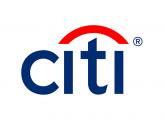

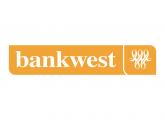
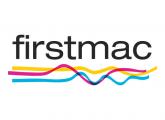


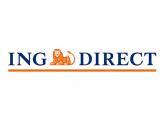
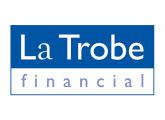


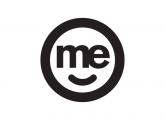
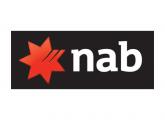





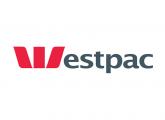
Enquire With Us Today
